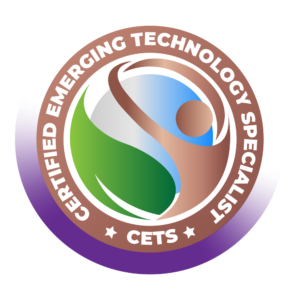Smart Cities and Sustainable Transportation
COMING SOON

The Smart Cities and Sustainable Transportation training program covers digital transformation, sustainable transportation, land transport technology, environmental sustainability, decision-making, aviation sustainability, AI-enabled mobility, autonomous driving, smart city management, policy design, environmental sustainability in freight terminals and ports, and future trends in sustainable transportation and logistics.
The debate on smart city studies is influenced by new technologies and their social impact. The next generation of research should learn from global smart city projects, considering social, economic, technological, and community factors. It integrates technological sophistication, human and social dynamics, and the strategic orientation of smart cities.
Sustainable transportation is a crucial concept influencing political decisions. It focuses on the characteristics of passengers and freight transportation, emphasizing their environmental impact. The main sources of energy support each mode, and intermodal systems are discussed. Decision-making in conflicting scenarios is explained, and emerging trends in sustainable transportation are discussed. Economic growth and global trade relations have led to increased transportation activities, but transportation is also linked to negative external effects like noise, air pollution, and accidents and contributes significantly to human-induced climate change.
In today’s globalized world, both freight and passenger transportation activities are increasing, offering significant benefits and improved quality of life to citizens and consumers. However, these activities also contribute to negative externalities such as pollution or GHG emissions. Therefore, there is a need for moving toward more sustainable and efficient transportation systems and practices.
Krishnaji Pawar, a renowned sustainability expert, developed Smart Cities and Sustainable Transportation training, specializing in sustainable design strategies, environmental impact assessment, green building certification systems, energy modeling, and environmental management systems.
Beyond Smart Cities is the first global marketplace for green technology, connecting millions of experts in sustainability, green building, energy, health, safety, fire safety, climate change, and green product and technology manufacturing. Its mission is to build and support a global community of professionals with the highest standards in these areas, including GHG accounting, carbon auditing, and managing GHG emissions.
Learning Objectives
- Digital Transformation in Smart Cities Management
- Designing Smart City Policy
- Sustainable Transportation Concepts and Practices
- Introduction to Land Transport Technology
- Environmental Sustainability in Freight Transportation Terminals and Ports
- Decision-Making in Sustainable Transportation and Smart Logistics
- Sustainability in Aviation
- Current and Future Trends in Sustainable Transportation and Smart Logistics
- Smart Transportation: AI-Enabled Mobility and Autonomous Driving
Smart cities are a global trend involving advanced technology, social dynamics, and strategic orientation. However, they also pose challenges to human talent exploitation, necessitating bold responses to social issues and challenges.
Intelligent Transportation Systems are a growing trend in the transportation industry, aimed at improving safety, efficiency, and sustainability. These systems include vehicular ad-hoc networks, intelligent traffic lights, virtual traffic lights, and mobility prediction. They enhance mobility experiences and address urbanization challenges. Recent advancements in communication systems enable real-time operations, contributing to environmentally friendly smart cities. The system addresses security challenges, particularly privacy in public transit.
Other Related courses
Building Energy Modeling Professional – BEMP Exam Question Bank
The Building Energy Modeling Professional BEMP Exam Question Bank will help energy modeling professionals create a focused, individualized study plan to meet their professional development goals, in addition to the 500+ question BEMP Practice Exam with key terminology flash cards.
Learning Objectives
- Learn the terms and acronyms used in Energy modeling.
- Learn the basics of how to do high-level Energy modeling.
- Look into the process of hiring more closely.
- Know how the tactics work and make smart choices.
- Feel what it’s like to take the real ASHRAE BEMP test.
- Learn how to respond to questions that depend on the situation.
- The practice test should be seen as an important part of your schooling and studies.
- Study Flashcards for the ASHRAE BEMP Exam
The Building Energy Modeling Professional BEMP Exam Question Bank is comprised of multiple-choice inquiries. Students will be able to assess their knowledge and ability to complete the exam with the requisite score by completing 500 questions in five four-hour simulation exams. The simulation examinations correspond to the most recent version of the ASHRAE BEMP knowledge domain.



